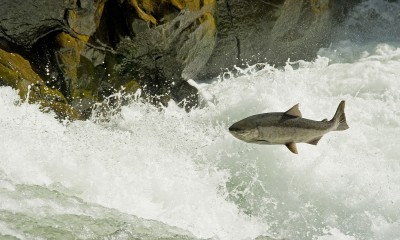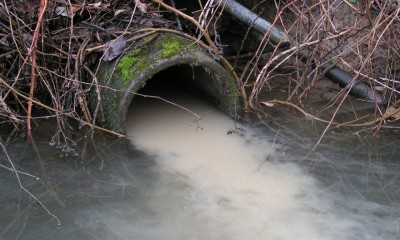Thousands of pipes release pollution into the Columbia.
The problem
The Columbia River basin, an area the size of France, accumulates pollution from industry, wastewater treatment plants, and runoff from agricultural lands, logging, industrial sites, and city streets. As a result, the Columbia River is severely degraded by pollution. Toxic pollution threatens the health of people that eat local fish and jeopardizes the public’s right to eat fish caught locally. Rising water temperatures also threaten the health of salmon and other aquatic life that rely on cool water for survival.
The U.S. Environmental Protection Agency (EPA) designated the Columbia River Basin a Critical Large Aquatic Ecosystem because toxic contamination and other pollution is so severe. EPA’s in-depth report on toxic pollution in the Columbia, the Columbia River Basin: State of River Report for Toxics, concluded that harmful pollutants are moving up the food chain, impacting humans, fish, and wildlife.
How we engage
Columbia Riverkeeper cracks down on illegal pollution by enforcing the Clean Water Act. Our top priority: Stop the pollution. Our second goal: Deter industry from violating the law in the first place. How? Our settlements require the offending company to pay a penalty. As part of the lawsuit settlement, the penalty funds support projects by other organizations that benefit water quality. In the last decade, penalties from Riverkeeper’s Clean Water Act lawsuits supported dozens of important projects to protect and restore healthy rivers.
Riverkeeper also challenges government decisions that allow more toxic pollution in our rivers and watchdogs permits-to-pollute, making the case for state and federal agencies to ratchet back pollution limits or deny permits to pollute.
Success Stories:
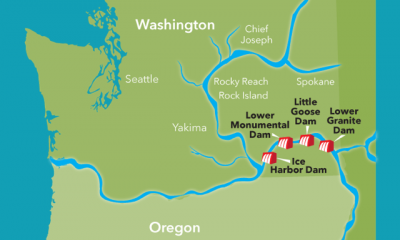
EPA must protect Columbia Basin salmon and steelhead from dangerously warm river temperatures.
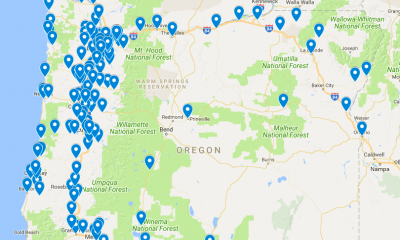
With a new permit, the State of Oregon can keep thousands of pounds of toxic pollution out of our of rivers.
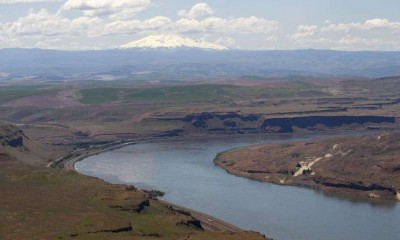
Sandvik, an international company with $82 billion in sales, discharged high levels of toxic metals, fluoride, and ammonia into the Columbia River for years—until Riverkeeper sued.
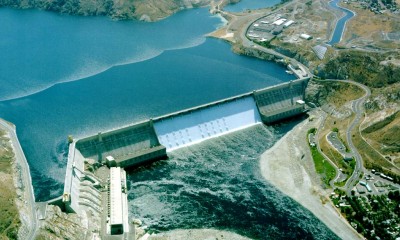
Columbia Riverkeeper sued and forced eight large dams to reduce toxic oil pollution—a victory that the New York Times called “historic” and the Wall Street Journal called “groundbreaking.”
Your membership protects and restores the mighty Columbia River now and for future generations.
Press Releases:
- Environmental Nonprofit Fights for Clean Water, Suing Timber Giant Weyerhaeuser for Breaking the Law, March 28, 2022
- Columbia Riverkeeper, Army Corps Settle Lawsuit Over Oil Pollution from Chief Joseph Dam, November 25, 2019
- Rocky Reach Dam Spills Over 300 Gallons of Oil into Columbia River, October 21, 2019
- Columbia Riverkeeper and Chelan County Public Utility District Settle Legal Dispute to End Unlawful Oil Pollution at Two Dams on Columbia River, March 20, 2019
- Columbia Riverkeeper Files Lawsuit to End Oil Pollution from Wells Dam, December 11, 2018
- Columbia Riverkeeper Provides Notice of Lawsuit Over Oil Pollution from Five Public Utility District-Dams on Columbia River, September 19, 2018
- Oregon Agrees to Improve Water Pollution Permit Affecting Hundreds of Industrial Sites, Ending Lawsuit with Environmental Groups, August 20, 2018
- Groups Applaud Decision to Revoke Lost Valley Permit, June 27, 2018
- Columbia Riverkeeper & U.S. Bureau of Reclamation Settle Lawsuit to End Uncontrolled Oil Pollution at Grand Coulee Dam, January 19, 2017
Resources:
Check out examples of Riverkeeper’s comments to state agencies on permits to pollute.
